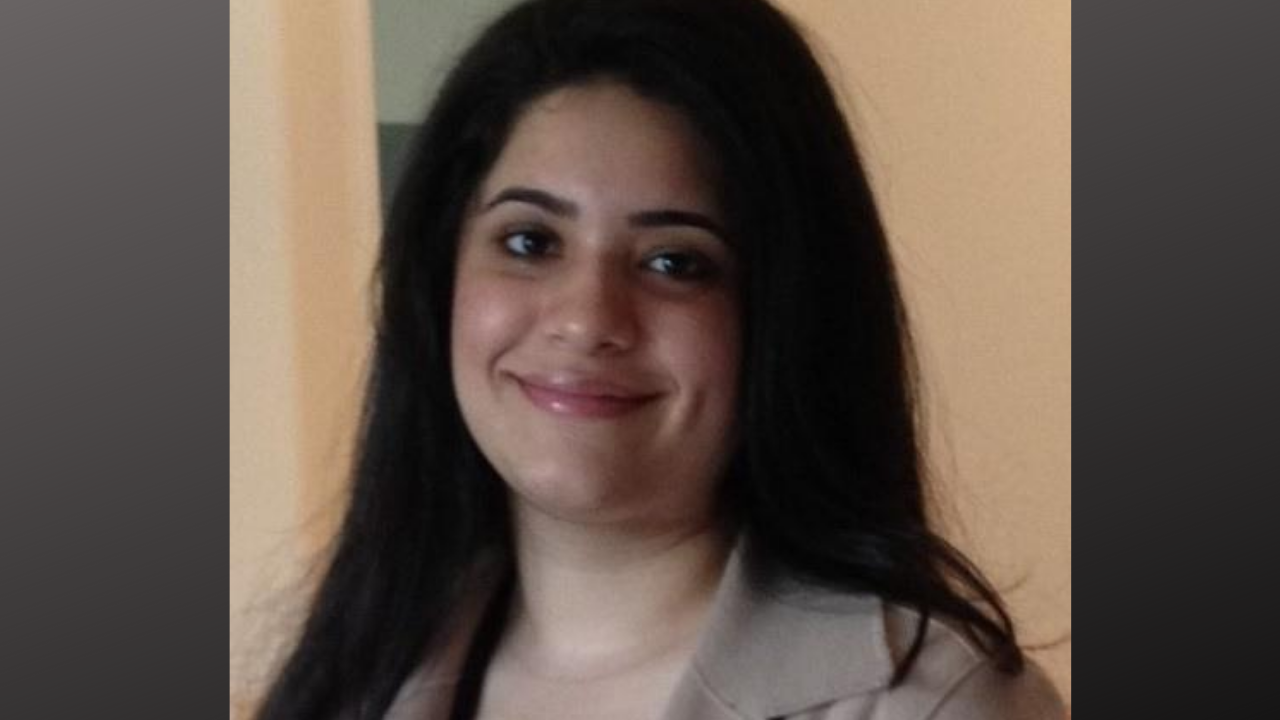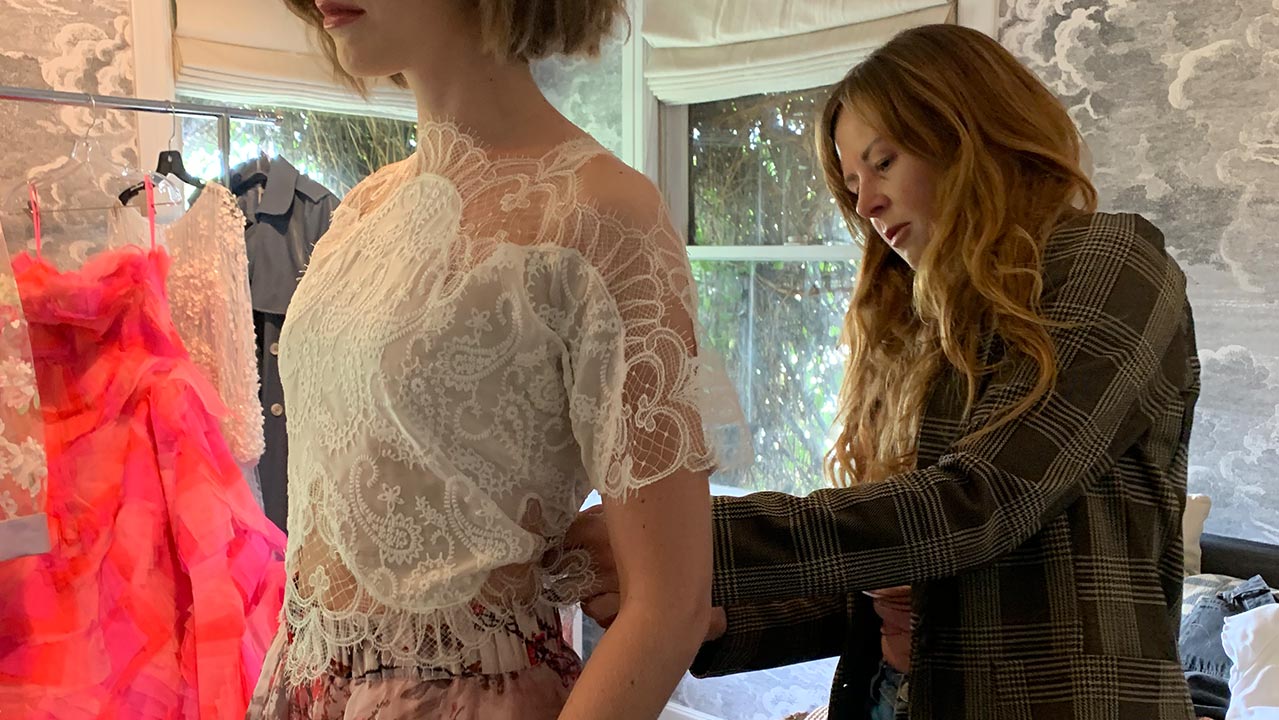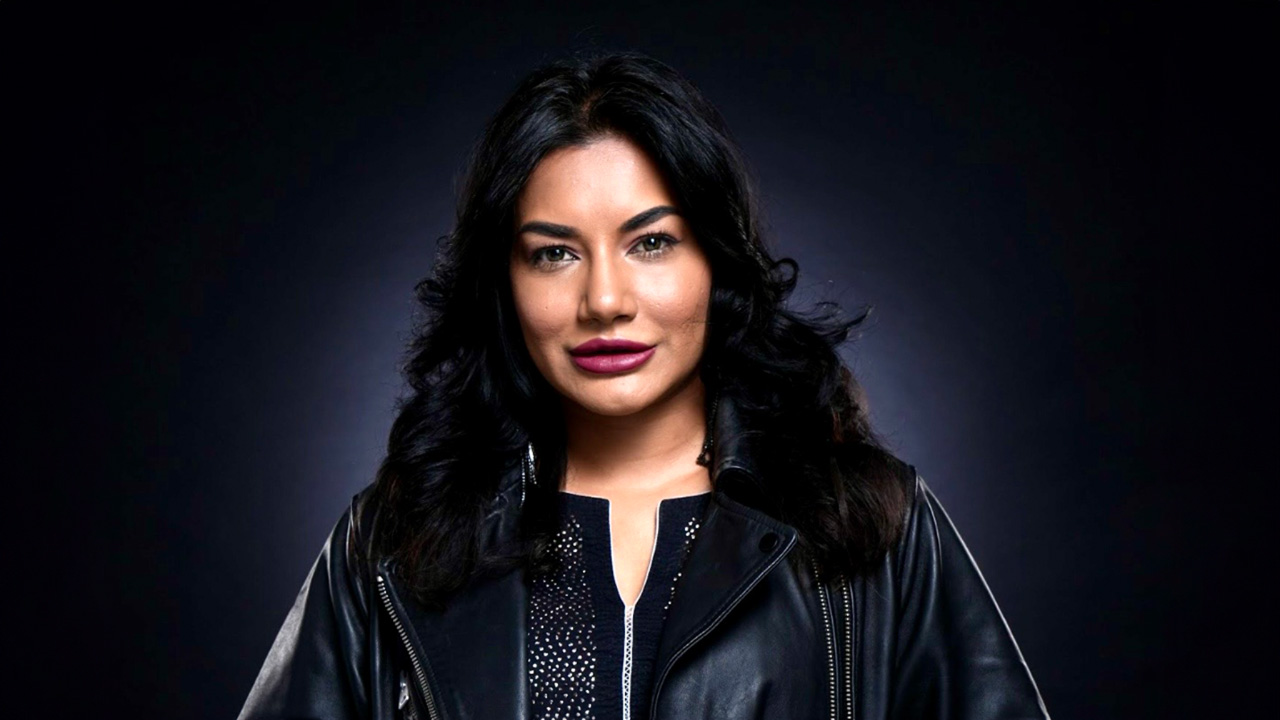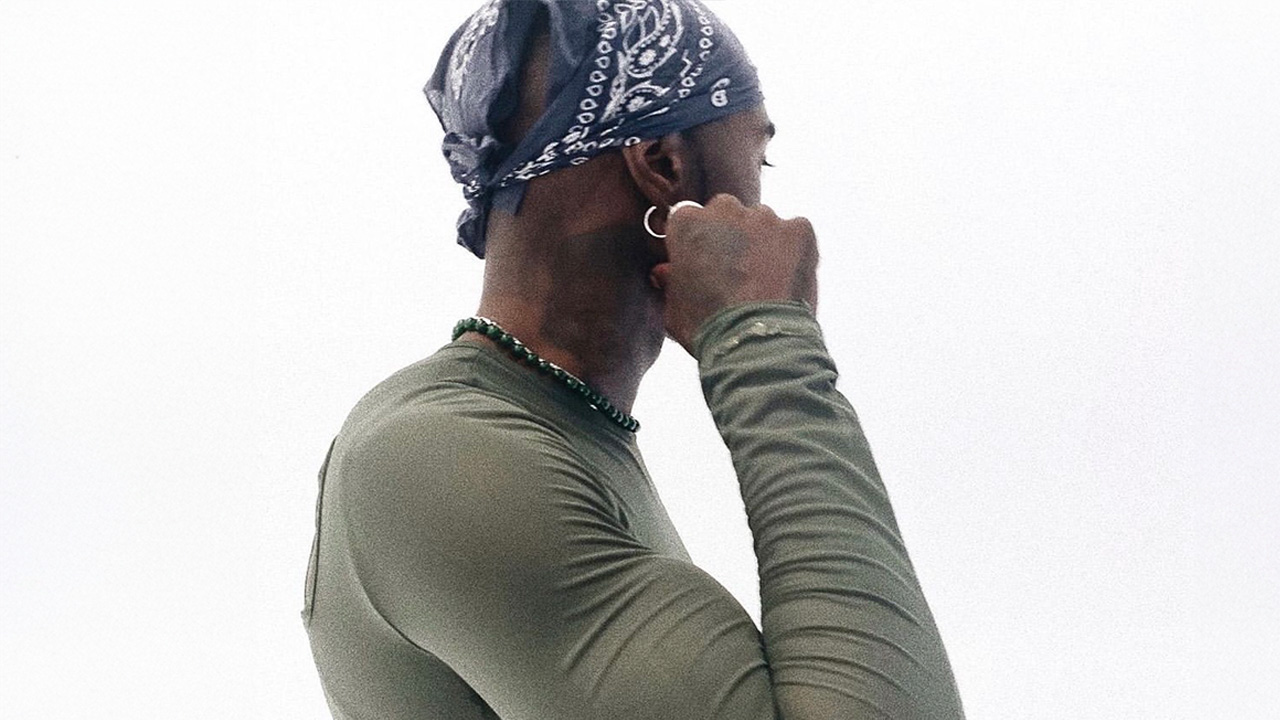
Alumni
Alumna is Doctoral Candidate in Global Leadership and Change at Pepperdine
Now a doctoral candidate in Global Leadership and Change at Pepperdine University, Sonya Sharififard graduated from FIDM with her B.S. in Business Management, served as the Editor-in-Chief of FIDM MODE, and is currently the President of the FIDM Alumni Association for Los Angeles. She recently contacted FIDM Instructor Dr. Dennis Morrison to let him know that she was elected to the Pacific Council on International Policy. We caught up with the accomplished alumna to learn more about her academic and career journey.
Tell us a little about your current PhD studies in Global Leadership: I have presented my research at major international conferences and have served on the review panel for various associations and institutions in North America, Europe, and Asia. My current research focuses on advancing student success, workplace performance, and law and policy in higher education. These experiences have helped cultivate my research skills and have given me a unique understanding of different cultures, people, and belief systems. Throughout my graduate studies, I have learned about the processes and actions through which an individual is influential. One might find something acceptable within an industry, but which is reversed in another culture. Essentially, the global leadership program helps students understand how they can lead across various situations, different cultures, and communicate effectively with individuals from different experiences and backgrounds.
Why did you choose FIDM? I had always wanted to attend school in Los Angeles because of its global presence. I understood the importance of world events and how they affect us locally. In high school, an admissions representative visited my campus to speak about FIDM and its programs. I was inspired by the presentation and immediately followed up and researched the institution. FIDM is a place where performance meets opportunity. I aspired to be educated in a place where both creative and managerial aspects of the educational process would be included in the curriculum.
How do you feel FIDM prepared you on your path to your PhD -- and how will your FIDM degrees serve you going forward into your career? On day one of class, I felt the breadth and depth of students who wanted to accomplish great things in their careers. I loved the creativity and motivation to apply their skills from the very beginning. I also appreciated my classmates' hard-working abilities and their willingness to share best practices about their successes and work ethic. We are very forward-thinking and are driven by purpose and individual thinking in creativity. FIDM shaped how we can collaborate, work well in group settings, and master our strengths and core expertise. I also learned the importance of discovering our sense of entrepreneurship and the emphasis on starting your own business and creating opportunities while in school. There was such a central focus on launching our business and developing innovative ways to launch our careers. We always had to ask ourselves why we do the things we do, how we do them, and when, which were critical to starting a career in business. Starting with why and evaluating how you spend your leisure time and making the connections necessary to pursue your interests were always a part of the conversation.
My first experience with learning about time management was at the FIDM Success Seminar. The Director, Ms. Debbi Schuver, and her team led an exciting presentation as part of our Student Orientation. I also remember Professor Sheryl Marcus' trends and forecasting presentation, which helped prepare my approach to coursework management and preparation. Ultimately, FIDM helped develop my critical thinking skills and professional outlook. We were treated as professionals and were expected to perform with rigor and competence in preparation for the workforce. In one of my business classes, our instructor required the class to address our course project teammates as colleagues, dress in business attire for every class meeting, and in the form of simulation, serve as consultants, partners, and clients, with the instructor serving as our advisor. From there, I learned about the management of firms and how to think like a business professional. I felt more confident and positive about making the transition from student to professional after graduation.
Further, when I served as the Editor-in-Chief of FIDM MODE, I had to work with several different departments across FIDM to ensure that our publication was consistent with the appropriate FIDM guidelines and policies. These communications helped as I learned to speak with colleagues professionally, understand the needs of every respective department in an organization, and understand the mission and vision of the institution that I was serving. Additionally, we were learning about the trademark process and the copyrightability of our proposals. We also had to consider the interpretations that would form when distributing the piece to constituents around the world. I was proud that our student-run publication had reached such a broad audience and was often displayed at major FIDM events.
Lastly, I developed two business plans as part of my degree requirement in the Business Management program. In many ways, a business plan is similar to writing a thesis or dissertation. In that same respect, I had written my senior thesis and capstone at FIDM, which were about leadership and education. I continued the same path and developed my findings as I moved forward with higher learning outcomes.
When you write a business plan, you must identify a gap in the market or find a problem to solve, indicate your value proposition, find a niche in the market, leverage resources, and consider how your business will function across sectors, as well as the legal structure. You must also identify your sources of funding and financial projections.
The same applies to what a researcher needs to develop a research proposal, whether applied or theoretical. You identify a gap in the literature, create a hypothesis, indicate your problem statement and the purpose and importance of your study, collect data, analyze and interpret results, and create a compelling presentation and delivery of findings. You also make connections to the broader academic disciplines and related studies while making a case for why your research is significant and positioned appropriately to the world we live in. We also determine how to fund the project and must think entrepreneurially about the manner in which we disseminate our research and make claims for the motivation and importance of our work.
My degrees earned from FIDM will continue to help me in any profession because I have been trained with the knowledge, resources, grit, and determination to dream big, stay inspired, and remain committed to my professional advancement.
Tell us about your role as President of the FIDM Alumni Association for LA: As the President of the FIDM Alumni Association in Los Angeles, I work closely with the Director of Alumni Relations to ensure that our alumni who live or work in Los Angeles excel in their careers. We provide our alumni with the support they need to thrive in the industry and prepare for their next steps. We also help welcome new graduates to our alumni network.
I help with facilitating events, webinars, and workshops that help our graduates continue to succeed and stay connected to FIDM.
Tell us about some of the highlights of your FIDM experience: There are so many highlights! First, I love to learn, and most importantly, I love to read. I had such a memorable and pleasurable experience reading so many business case studies and working on an array of projects. Whether it was fashion and beauty marketing analysis, social media and advertising, media and radio communications, apparel, healthcare, international cosmetic formulations and product development, the retail environment, or environmental policy, every class had a variety of subjects to study. We related disciplines together and brought real-world experiences and insights into the classroom. Every quarter, we were introduced to guest speakers and alumni who would speak about their careers or business, and I loved having the opportunity to meet so many amazing professionals. My favorite FIDM event as a student was Career Connections! Somehow, everything would begin to fall in a full circle at FIDM, and I felt that every new chapter was opening for me at the right time.
Unexpectedly, I also enjoyed the experience of cold calling in the classroom! Because most of our class sizes were small, there was a very impactful and personable interaction between students and instructors. These sessions and formats of instruction helped prepare me for graduate studies where there is a lot of discussion and class participation in small settings.
As mentioned earlier, I also had the honor of serving as the Editor-in-Chief of the FIDM MODE magazine. I had a fantastic experience working with the most talented writers, graphic designers, stylists, and members who grew the publication. I still frequently remember all our teammates and all the great memories. It has been so inspiring to see the magazine’s growth! Further, whenever I had the opportunity, I would volunteer in the Student Activities office. This experience allowed me to meet students and faculty while being more involved in extracurriculars. In my senior year, I served as the Event Director of the first FIDM Student Showcase, The Science of FIDM. I will never forget how our students and prospective applicants came together to learn about each other’s projects, view portfolios, and learn about the FIDM experience. One other highlight of my FIDM experience was our partnership with Cotton Incorporated. Our team came first among other colleges and universities to collect the most denim, which was recycled and converted into natural cotton fiber insulation to build Habitat for Humanity homes.
There are so many more highlights, and I would love to share my experiences one day in full!
What is next for you? I am looking to apply to fellowship positions; but I understand that I will have to be patient in the months ahead as we all learn to work and grow through the current pandemic. I feel prepared to pursue any opportunity that I am meant to follow!
What are your career goals? My goal is always to be better each day, and to acquire new experiences in my career. I would like to continue to work on business and leadership strategy, as well as the intersection of law, education, and workplace success.
I know that whatever happens, FIDM will always be a part of my journey.
Anything else you’d like to share? I believe it is essential to speak with professionals in the field and always acquire information to learn and grow. Many companies and colleges and universities have publicly available webcasts and live streams that you can participate in from around the world. Several events that were previously conducted on-site have moved online because of the pandemic. Interestingly, there is now an opportunity to become more involved and engaged with activities that might not have been possible in the past.
Categories: Business Management Alumni




